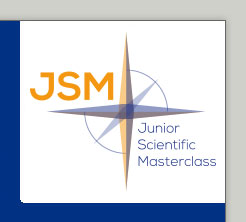Edit researchproject
In this email you'll find a link that you can use to edit the project on the website.
Only researchers that belong to the project can edit their project.
Please use the selectlist below to indicate which researcher you are. When you click the button 'Edit project', an email will be sent to the email of the selected researcher.
Project properties
| Title | Experiences of pregnant women and their partners with prenatal emergency diagnostics by means of genetic testing (prenatal whole exome sequencing) |
|---|---|
| Keywords | prenatal diagnostics patient experiences genetic testing |
| Researchers |
prof. dr. A.V. Ranchor Prof. I.M. van Langen J. El Mecky |
| Nature of the research | Qualitative research: interview study with patients Quantitative research: conducting surveys with patients |
| Fields of study | health psychology genetics |
| Background / introduction |
|---|
|
Whilst undergoing a routine ultrasound examination during the 20th week of pregnancy, prospective parents may receive the profoundly upsetting information that their child has several congenital anomalies (e.g. heart defects, brain abnormalities). “You are very sad and shocked in the beginning, actually totally devastated because the dream of the perfect child is broken,” a mother who had this experience explained (1). Unfortunately, many structural abnormalities currently remain unexplained until the end of pregnancy. However, information about the underlying genetic cause could potentially be of high value during pregnancy in terms of assisting parents’ decisions on whether or not to continue the pregnancy, as well as medical decisions on treatment during and post gestation. A new UMCG pilot study in genetic diagnostics aims to address this issue. New, broad genomic tests that look at a large amount of genes simultaneously and in great detail are increasingly implemented in clinical genetic practice. For example, Whole Exome Sequencing (mapping all the protein-coding regions, or exons, of a patient) allows for an approximately 30% diagnostic yield in fetuses with anomalies detected by ultrasound, which is significantly higher as compared to other genetic tests (2). The Clinical Genetics department of the UMCG is currently executing a pilot study whereby pregnant women are offered Whole Exome Sequencing (after extensive pre-test counseling by a genetic counselor) in case of fetal anomalies detected by ultrasound. What makes this project special is the high speed at which this test is carried out: results are expected in a matter of days rather than the usual 4-6 weeks. The rapid testing process is of high importance for this population group: difficult decisions need to be made in a very short time frame, as the legal cut off point for abortion is 24 weeks in the Netherlands. |
| Research question / problem definition |
|---|
| Medical technologies cannot and should not be evaluated solely on the basis of their medical yield. It is highly important to understand and take into account patient experience: do these kind of broad genomic technologies really make it easier for prospective parents to reach decisions? Do prospective parents experience them as valuable or does it perhaps force some people to make decisions they would rather not make? What is their experience of the counseling and testing process and how does this compare to and differ from what is known in academic literature about parental experiences of other prenatal genetic testing technologies? Due to the context of prenatal genetic testing, in which emotionally highly difficult decisions need to be made, amongst partners who need to agree with each other, within a very short time frame, these questions need to be researched extensively before Whole Exome Sequencing can be responsibly and routinely offered as part of prenatal clinical practice. |
| Workplan |
|---|
|
The JSM student will be part of the ELSI (ethical, legal, and social implications) research team at the Clinical Genetics department of the UMCG. A PhD student from this research group who is experienced in qualitative research and a physician’s assistant who is experienced in survey research will supervise the student in the process of carrying out the following work plan: QUALITATIVE STUDY 1) Development of an interview guide (a list of questions which will be used to guide interviews) 2) Conducting interviews (approximately 10) with women and their partners who have been offered Whole Exome Sequencing as part of the pilot study. 3) Transcribing the audio data from the interviews 4) Coding the transcribed data with the help of qualitative research analysis software QUANTITATIVE STUDY 1) Conduct short surveys (developed by a clinical psychologist) amongst participants included in the pilot study 2) Process survey data Based on the qualitative and quantitative data, the student will write a report and collaborate on an academic publication based on the analyzed data. The outcomes will be of direct relevance and applied to clinical practice and patient care. Fluency in Dutch (oral and written) is necessary. Experience with qualitative and quantitative research is highly useful, yet not a requirement. |
| References |
|---|
|
1) Larsson, A.-K., Svalenius, E. C., Lundqvist, A., & Dykes, A.-K. (2010). Parents’ experiences of an abnormal ultrasound examination - vacillating between emotional confusion and sense of reality. Reproductive Health, 7, 10. http://doi.org/10.1186/1742-4755-7-10 2) Vora, N. L., Powell, B., Brandt, A., Strande, N., Hardisty, E., Gilmore, K., … Evans, J. P. (2017). Prenatal Exome Sequencing in Anomalous Fetuses: New Opportunities and Challenges. Genetics in Medicine : Official Journal of the American College of Medical Genetics, 19(11), 1207–1216. http://doi.org/10.1038/gim.2017.33 |


